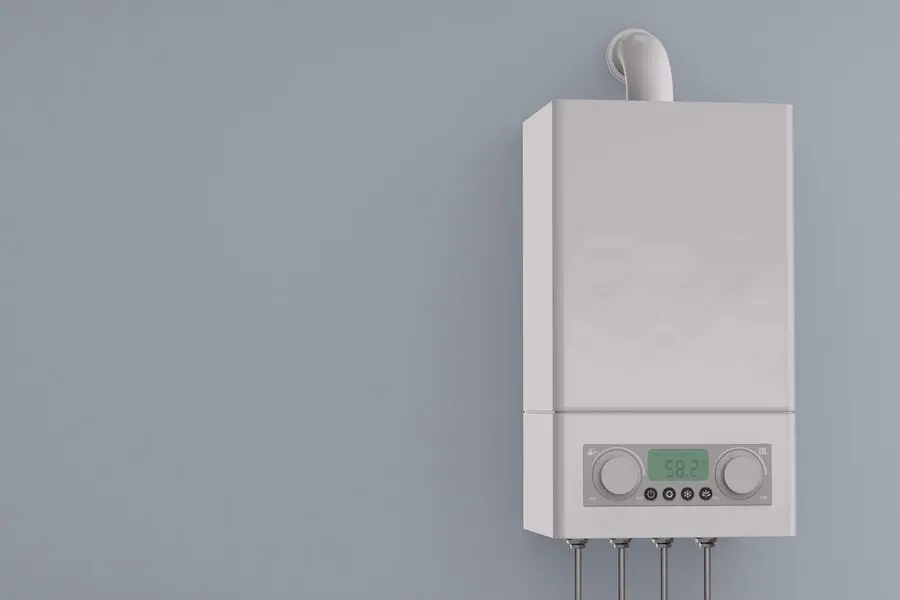Do you notice a rotten egg smell in your water? If yes, then you might be dealing with sulfur-smelling hot water.
This unpleasant odor comes from the presence of hydrogen sulfide gas in water.
Not only is it unpleasant, but it could also indicate that your water is contaminated with sulfur bacteria or that the hot water heater’s anode rod needs replacement.
sulfur smelling hot waterDon’t worry, in this article, we will discuss:
Sulfur bacteria are commonly found in groundwater and wells.
These bacteria thrive in warm environments with little to no oxygen, which makes the hot water heater tank an ideal breeding ground for them.
They release hydrogen sulfide gas, which gives off a rotten-egg-like odor, causing the hot water to stink.
An anode rod is an important component of the hot water heater, which helps prevent rust and corrosion formation inside the tank.
The anode rod works by corroding before the tank’s steel does. Over time, it gets depleted, leaving the tank open to deterioration.
When this happens, the water in the tank becomes contaminated with hydrogen sulfide gas, leading to sulfur-smelling hot water.
Hydrogen sulfide gas is produced naturally from decaying organic material like plants, animals, and other manganese and sulfur-rich substances.
When this gas dissolves in water, it gives it that unpleasant, rotten egg odor.
If the water source for your home contains hydrogen sulfide gas, it could be the cause of the sulfur smell in your hot water.
Perform a Cold Water Test
Turn on the cold water faucet and fill a glass with water. Smell the water to see whether it has a rotten egg odor.
If the smell is present, it means the odor is coming from your water source, and you need a water treatment system.
Perform a Hot Water Test
Fill a glass with hot water and smell it. If the odor is coming from the hot water, it might be due to sulfur bacteria buildup in your water heater tank.
If the sulfur smell is coming from both hot and cold water, it means the water source is contaminated with hydrogen sulfide gas.
The unpleasant odor commonly referred to as the “rotten egg” smell can be attributed to the presence of hydrogen sulfide in your home’s water supply.
This smell is often noticed when running hot water from faucets connected to the water heater.
The water heater’s tank and the anode rod inside it can contribute to the problem.
Hydrogen sulfide gas in your water can be a result of several factors.
Sulfur bacteria thrive in warm environments, such as the water heater, and produce the sulfide gas that causes the distinct smell.
Additionally, sulfates present in the water, especially in well water or underground sources, can create the sulfur smell.
To eliminate the smell, it is essential to identify the source of the problem.
Draining your water heater and flushing out the stagnant water can help remove the sulfur bacteria and sulfates in the water.
You may also consider using a water filter or treating the water to get rid of the sulfur smell.
If the smell persists, it is recommended to consult with a professional or contact your local water treatment facilities to determine if there is an underlying issue with your water supply.
In some cases, the problem may be related to the water source itself or a specific problem with your water heater.
In conclusion, the presence of hydrogen sulfide in your home’s water supply can lead to a foul smell reminiscent of rotten eggs or sulfur.
Taking appropriate steps to identify and address the source of the smell is crucial to ensure clean and odor-free water for your household.
Flush Your Hot Water Heater
Flushing your hot water heater every six months helps eliminate the sulfur bacteria buildup.
To do this, you should:
Once the water has drained entirely, turn the cold water supply back on, and repeat the process until the water coming out of the drain valve runs clear.
Replace Your Anode Rod
If the smell is due to the anode rod’s depletion, replacing it with a magnesium anode rod could solve the problem.
Magnesium anode rods are more effective at attracting corrosive elements than aluminum or zinc anode rods.
Use a Water Filter
Water filters such as activated carbon filters, reverse osmosis systems, or iron and sulfur removal filters are effective at removing sulfur and other contaminants from water.
Regularly Maintain Your Hot Water Heater
Regular maintenance of your hot water heater helps prevent the buildup of sulfur bacteria and other contaminants in the tank.
Professional plumbers can help inspect, clean, and maintain your water heater to ensure it’s functioning properly.
Use a Water Softener
Hard water is rich in minerals like calcium and magnesium, which can interact with the anode rod and cause sulfur smell.
A water softener can help remove these minerals, prolonging the anode rod’s lifespan and the hot water heater’s tank.
Our team offers water softener installation services
Install a Hydrogen Peroxide Injection System
A hydrogen peroxide injection system is a water treatment system.
This injects hydrogen peroxide into your home’s water supply, oxidizing all the bacteria and sulfur, which causes water to smell like rotten eggs.
Consider a Tankless Water Heater
Tankless water heaters don’t use a hot water heater tank
This means there is no warm environment where sulfur bacteria can thrive and grow, eliminating the sulfur-smelling hot water problem.
Al Rooter Plumbing team offers tankless water heater installation services

Choose the right size water heater for your home
Choose a water heater that has the appropriate capacity for your home’s water needs.
A larger unit than necessary could lead to more bacteria growth and deterioration of the tank.
Consider buying a water heater with a magnesium anode rod rather than an aluminum or zinc one.
Magnesium anode rods are more effective at reducing sulfur bacteria growth, which means more extended anode rod life and cleaner water.
In conclusion, sulfur smelling hot water can be a frustrating and unpleasant problem to deal with.
Nevertheless, knowing the possible sources of the smell and ways to prevent, test and fix it can help you avoid it.
Get rid of hot water problems with our water heater services
Consider calling a professional plumber if you can’t pinpoint the cause of the odor or if you need assistance with maintaining your water heating system.

